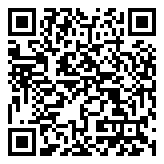CLS: Journalism & Media Literacy
This widget is displayed if cost is set. In order for the widget in this page to be displayed correctly, please set cost for your last event.How to set cost
In an ever-changing world with many different forms of news and media, it’s important to analyze and make informed judgments as users of information.
Hans Meyer
Monday, June 24, 10:30 a.m. | Orchestra Hall
“Media Literacy: The Who, Where, When & What of How You Get News”
It’s easy to separate media into categories based on bias, but the real formula for how news and information get to you is a lot more complicated.
In this lecture, Hans Meyer examines the classical foundation of journalism, including why the founding fathers included speech and press protections in the Bill of Rights, to understanding why news looks the way it does.
Meyer will also explore how business and technology contribute to the mix, with the end goal of providing a framework to help us determine credible and useful news.
Tuesday, June 25, 10:30 a.m. | Orchestra Hall
“Algorithms, Memes, Virality: What Drives Social Media Engagement (& How I Can Get in on It!)”
Like news, it’s easy to oversimplify social media, but it’s much more complex than memes, viral videos and Aunt Martha’s green bean casserole recipe. In fact, it’s a multi-billion-dollar industry fueled by tech giants who are more interested in exploring what technology can do than whether it should.
That doesn’t mean Facebook, Instagram and TikTok can’t produce valuable information. It just means that consumers have to be critical and even a bit skeptical about what they see. Knowing this, however, empowers individuals to maximize the engagement and social benefits these platforms offer and reach audiences more completely and effectively than ever before.
Meyer is a professor and Associate Director for Undergraduate Studies at the E.W. Scripps School of Journalism at Ohio University. His research focuses on what motivates citizen contributions to online news sites and the ways news organizations can meet these needs. This is just one part of an effort to find and encourage news organizations to create community among their readers, both online and off.
Meyer is also working toward a new definition of credibility for online media that incorporates the connection audiences feel toward the reporter and the site.
He examines social media as a platform for connecting journalists and their audiences. He has embraced the impact of other new forms of technology on community building, such as 360-degree video, virtual reality and YouTube-style personal experience vlogs.
Chris Davey
Tuesday, June 25, 3:30 p.m. | Orchestra Hall
“Reinvigorating Truth & Trust: A New Strategy for Higher Education”
In an era of perpetual global information warfare and declining trust in institutions, American journalist and public relations executive Chris Davey and Duch historian and PR tech executive Bart Verhulst propose a strategy for higher education to address the twin crises of truth and trust.
By supporting research in communications and journalism, applying new research to journalism education, teaching media literacy and embracing the role of news publishers, universities can help restore public confidence and promote a more informed and resilient society.
 Davey is a strategic communications consultant with more than 30 years of experience in government, higher education and media. He’s a founding partner of 30PR, a national communications consulting firm.
Davey is a strategic communications consultant with more than 30 years of experience in government, higher education and media. He’s a founding partner of 30PR, a national communications consulting firm.
He was Senior Associate Vice President for Ohio State University (OSU) for more than six years where he managed social media, crisis response, executive communications and media relations. For 11 years, Davey was the Chief Communications Officer for the Supreme Court of Ohio, where he served as a Senior Advisor and Speechwriter for the Chief Justice.
In 2015, Davey co-authored the chapter on courts and the media in the American Bar Association’s textbook on judicial administration. He is a former journalist covering politics and government for the Cincinnati Enquirer and the Dayton Daily News.
Davey has a bachelor’s degree and master’s degree in journalism and communications from OSU, where he was a Fellow in the Kiplinger Public Affairs Journalism Program in 2002.
Jeannette Keton
Wednesday, June 26, 10:30 a.m. | Orchestra Hall
“Fake or Fact: From Disruption to Disinformation”
Have you ever heard someone say, “Who knows what’s true anymore?” In today’s saturated media environment, when anyone with a smartphone and access to the internet can claim title as a writer, editor, news broadcaster or journalist, it can be difficult to determine fake from fact – with serious ramifications for democratic forms of government.
Longtime Lakesider and former reporter Jeannette Keton explains how journalism has evolved over the years, who benefits from the current wellspring of disinformation, the implications for democracy and what we as a country and as individuals can do to fight back.
“Fake or Fact? Real Tools to Determine Real News” is a modular program for the workplace that raises awareness about information manipulation, challenges us to think critically about news and other information and provides tools that can be used to distinguish fake from fact. “Fake or Fact: From Disruption to Disinformation” is the first part of the program.
Keton is a communications strategist, coach and writer who launched her career as a journalist with stints at KTBC-TV in Austin, Texas, and “The Dallas Morning News.”
In 1997, she, her husband and several other investors launched e.coetry, the exclusive reseller of SAP software to small companies in the Southwest.
In 1999, e.coetry was named the third fastest-growing tech company in Dallas by the Dallas Business Journal and Sevin Rosen Funds. Keton served as Marketing/Communications Director for e.coetry, which was acquired by Schmidt Vogel Consulting in 2000.
In 2003, Keton launched a communications consulting firm. She consulted from 2004-2019 with senior executives at Trinity Industries, Inc., a Dallas-based Fortune 1000 company. She also consulted with Dallas-based Baylor College of Dentistry and Children’s Medical Center, now Children’s Health System, as they planned and executed activities recognizing their respective 100th anniversaries. Her work with Children’s included managing the development of content for a $2 million exhibit commemorating the medical center’s history.
Keton’s work includes a history of Baylor College of Dentistry and a biography of the first woman to shoot the Big 5 on a 21-day African safari.
She’s currently finishing a biography of Elliott Roosevelt, Jr., a grandson of President Franklin Delano Roosevelt.
She is the founder of “Fake or Fact? Real Tools to Determine Real News,” a media literacy program for the workplace. For more information, visit www.fakeorfacttools.com.
Curt Prendergast
Thursday, June 27, 10:30 a.m. | Orchestra Hall
“What Happened to the Hometown Paper?”
Friday, June 28, 10:30 a.m. | Orchestra Hall
“The Future of Journalism”
Curt Prendergast is a co-founder of the Tucson Agenda, a daily newsletter focused on government and politics in Tucson.
Prior to founding the Tucson Agenda, he was the opinion editor at the Arizona Daily Star, the daily newspaper in Tucson where he also covered the U.S.-Mexico border, federal court, local government, transportation, and pretty much every beat you can imagine.
He believes local journalism is the key to a healthy democracy and loves talking about it.

